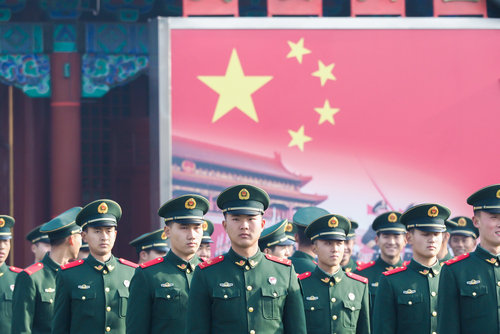Usually, I am agnostic about where I invest.
I am willing to invest in any stock, bond, currency, commodity or country… as long as I can get my head around its fundamentals.
Still, I have my biases.
As I’ve written before, I am not a fan of investing in China.
Despite the hype, few U.S. investors have made money investing in the “China miracle.”
And the political risks of investing in a country run by the Chinese Communist Party (CCP) have always hung over investors like a Sword of Damocles.
The absolute power of the CCP means the investing rules in China can change overnight.
Only recently has the rest of the world begun to catch up to my long-held views.
The Bane of Emerging Markets
Emerging markets have had a rough decade.
If you diversified your portfolio internationally, you paid a hefty price in forgone profits.
(I’ve already discussed some of the reasons emerging markets have lagged behind.)
Recently, I’ve become convinced that emerging markets’ underperformance is due to China’s weight in mainstream emerging markets indexes.
In the iShares MSCI Emerging Markets ETF (NYSE: EEM) today, China has the largest weight, at around 34%. And that’s down from more than 40% before the sell-offs in July and August.
But that’s not how it’s always been.
Back at the height of the biggest emerging markets boom, in 1994, China barely even made it into the MSCI Emerging Markets Index.
China’s lousy performance over the past decade has weighed ever more heavily on the entire emerging markets asset class.
Goodbye, China
A decade ago, your email inbox was chock-full of promises that you’d make a fortune investing in the China miracle.
Much has changed since then.
Wall Street is remarkably efficient when it comes to finding ways to make money. That’s because it is not driven by foreign policy experts or corporate apologists making excuses for an oppressive CCP.
The reality is this: Over the past year, the CCP’s clampdown on the private sector has hit China’s e-commerce, education, fintech, ride-hailing and gaming industries hard.
Even high-profile billionaires – like Alibaba founder Jack Ma – disappeared from public view for months at a time.
Wall Street’s solution?
Launch an alternative emerging markets index and exchange-traded fund (ETF) – the iShares MSCI Emerging Markets ex China ETF (Nasdaq: EMXC) – specifically excluding China.

As the chart above confirms, the Emerging Markets ex China ETF has crushed the traditional Emerging Markets ETF over the past year.
And sure enough, investors are voting with their dollars.
The Emerging Markets ex China ETF had assets of just $165 million at the end of 2020. That jumped to $900 million by the end of July and $1.28 billion by the end of August.
Copley Fund Research, an independent researcher focused on global and emerging markets funds, separately analyzed 381 global equity funds with combined assets of $1.1 trillion.
It found that the average exposure to China and Hong Kong has plunged from 5.1% in January to 3.8%, the lowest level since 2016. The average global equity fund now has 14.3 times more exposure to the U.S. than it does to China and Hong Kong.
Peter Oppenheimer, chief global equity strategist at Goldman Sachs, observed that some investors now consider Chinese stocks to be “uninvestable.”
The Contrarian’s Dilemma
I am a contrarian by instinct. When an investment fad goes one way, I instinctively look in the opposite direction.
So why don’t I take the same approach with China?
China is cheap. After all, a lot of bad news is already priced into China.
The forward price-to-earnings ratio for the MSCI Emerging Markets Index currently stands at 13.07, a 40.9% discount to the S&P 500’s.
Yet I still won’t invest in China for two reasons.
The first is ethical. I cannot support in any way the Communist regime that dominates the country.
The second is practical. Yes, the Chinese economy continues to grow. And yes, China will play an ever more important part on the world’s political stage. That, however, does not make China a good investment. Political risk trumps all other risks in investing.
You can model your way to a profitable investment strategy using the most sophisticated financial tools on the planet.
But that means nothing in a market where the government can willfully change the rules of the game.
I can’t predict what the Chinese stock market will do in the years ahead. But one thing I can predict… The CCP will do as it pleases.
And it will have zero regard for how its actions impact the portfolios of U.S. investors.
My recommendation?
Don’t risk your hard-earned cash. Stay away from China.
Good investing,
Nicholas
Click here to watch Nicholas’ latest video update.
For the latest news from Nicholas, connect on Facebook and Twitter.

